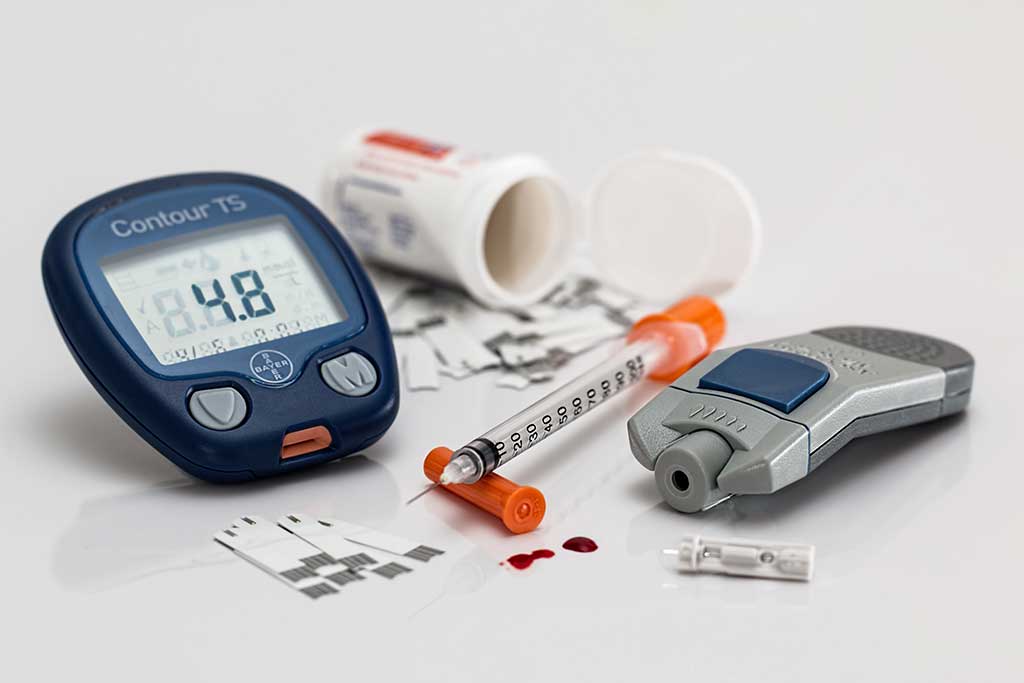Diabetes increases heart attack risk by 48%
Diabetes
'People with diabetes 48% more likely to suffer heart attack' The Guardian reports and the Daily Mail adds 'people with diabetes also 65% more likely to have heart failure'. The stories are prompted by an audit into diabetes-related complications…
"People with diabetes 48% more likely to suffer heart attack, researchers find," says The Guardian. Meanwhile, the Daily Mail reports that people with diabetes are "65% more likely to have heart failure than the rest of the population".
Both stories are based on the most recent report of the National Diabetes Audit, which presents data from England and Wales on the complications that arise due to diabetes.
Diabetes makes it difficult for the body to control blood sugar levels. High blood sugar levels can damage blood vessels and lead to range of complications, such as:
- heart attacks
- heart failure
- stroke
- angina – chest pain that results from a temporary restriction of blood supply to the heart
- kidney disease
- retinopathy – where the retina (the light-sensitive layer of tissue at the back of the eye) is damaged
- foot ulcers, which in the most serious cases, require a section of the foot or lower leg to be amputated
People with type 1 diabetes can also experience a dangerous complication called diabetic ketoacidosis where the body breaks down fat as an alternative source of fuel. Left untreated, diabetic ketoacidosis can be fatal.
The National Diabetes Audit report highlights these complications, as well as deaths in people with diabetes. The audit confirms and quantifies these risks, and provides recommendations on how the NHS can benefit from addressing the complications of diabetes, and how this can improve the lives of people with diabetes.
Who produced the report?
The National Diabetes Audit is produced by the NHS Information Centre each year. It looks at diabetes care and outcomes throughout England and Wales. The portion of the report covered in the media specifically focuses on complications and deaths related to diabetes. The current report covers the eighth year of the audit, and is based on data from 2010-11.
The National Diabetes Audit collects data from 85% of diabetes patients in England and 54% of patients in Wales. The report also includes data on non-cardiovascular complications, but we will mainly focus on the cardiovascular complications as reported in the media.
What evidence does the report look at?
The audit reviews the risk of several known diabetes complications, comparing risks seen in people with diabetes versus the general population. Most of the complications reviewed are seen after several years of poorly-controlled blood sugar levels, high blood pressure and high cholesterol. The conditions reviewed include:
- Myocardial Infarction (or heart attack), which occurs when the blood supply to part of the heart is interrupted, this results in the death of some heart cells.
- Heart failure, which occurs when the heart cannot pump enough blood to meet the body’s needs. The most common cause of heart failure is a previous heart attack, which caused the death of some areas of heart muscle, meaning the heart can’t pump effectively.
- Angina, which is a chest pain that results from a temporary restriction of blood supply to the heart. These temporary blockages are a sign that the person has coronary heart disease and is at risk of a heart attack due to complete blockage.
- Stroke, which occurs when the blood supply to the brain is disrupted (most commonly due to a blocked blood vessel), and can result in permanent loss of some brain function.
The audit also investigated the risk of death for diabetics compared to the general population.
To assess and compare these risks, the audit collected diabetes patient information from primary care records as well as hospital admissions data. It also collected data from Primary Care Trusts (in England), local health boards (in Wales), and national-level data to compare the number of complications seen specifically in diabetes to that observed in local populations. This gives us an idea of the excess risk for complications and death borne by individuals with diabetes.
The audit included data from nearly 2 million people with diabetes during 2010-11.
What are the main findings of the report?
The audit provides figures which have been statistically adjusted to reflect the demographics of the wider population, enabling comparisons to the rest of the UK on the percentage of people with diabetes who experienced a complication during 2010-11. These figures include:
- 1.38% (69,957) of people with diabetes had an episode of angina
- 1.54% (14,476) were hospitalised for heart attack
- 0.560% (45,001) had heart failure
- 0.036% (17,892) had a stroke
Compared to the prevalence of these conditions in the wider population of England and Wales, the audit found that people with diabetes are at increased risk for all of the conditions. This additional risk varied in size, and included:
- 71.3% increased risk of angina
- 48.0% increased risk of heart attack
- 64.9% increased risk of heart failure
- 24.9% increased risk of stroke
Further analysis revealed that the risk of experiencing any of the cardiovascular complications (heart attack, stroke, angina or heart failure) is higher in men, in older diabetics and in those living in the most deprived areas of the country.
When examining the risk of death during the year, the audit found that there were 24,120 additional diabetes-associated deaths in England and Wales during 2010-11. The risk varied by type of disease, people with type 1 diabetes had a 135% increased risk, and people with type 2 diabetes showed a 36.4% increased risk, compared to the wider population. Additional analysis showed that admission to a hospital for heart failure was the strongest predictor of death, with an increase of 261%.
What information on other types of complications did the report provide?
The audit’s figures for other complications during 2010-11 were:
- 0.074% (9,753) experienced kidney disease severe enough that a transplant or dialysis was required
- 0.23% (3,042) required a minor amputation
- 0.29% (1,731) required a major amputation
- 0.42% (8,472) developed diabetic ketoacidosis
- 0.26% (9,501) developed retinopathy
What recommendations does the report make?
The results of the audit are not too surprising, given that the conditions assessed are known complications of diabetes. However, the extent of the excess risk seen in people with diabetes, combined with the high prevalence of the disease across the UK, may result in a high burden on both the patient and the NHS.
The National Diabetes Audit report says “diabetes care aims to minimise complications (the acute and long-term diseases and premature death) caused by diabetes. Diabetes complications incur the greatest costs of diabetes to the patient and the health service. The risk of complications is reduced if the appropriate NICE-recommended care processes are completed and treatment targets are achieved.” It recommends better co-ordination of diabetes and cardiovascular care.
Given the increased risk of death among diabetics compared to the wider population, the audit report recommends that risk of premature death can be reduced by more action to prevent type 2 diabetes, and to reduce complications by improving diabetes care for all people with diabetes.
Reducing the risk of diabetes-related heart conditions
Diabetes is a major risk factor for cardiovascular conditions. For type 2 diabetes, the first step should be lifestyle changes, such as improving diet and increasing physical activity. If you have diabetes and these lifestyle changes fail to control your condition, your doctor may recommend you start taking diabetes medication.
Diabetics can also work with their GP to assess their risk of cardiovascular conditions, and work to reduce their risk through lifestyle changes, such as managing blood sugar, cholesterol levels, and blood pressure.
Read more about healthier living with diabetes.






 Subscribe
Subscribe Ask the doctor
Ask the doctor Rate this article
Rate this article Find products
Find products






